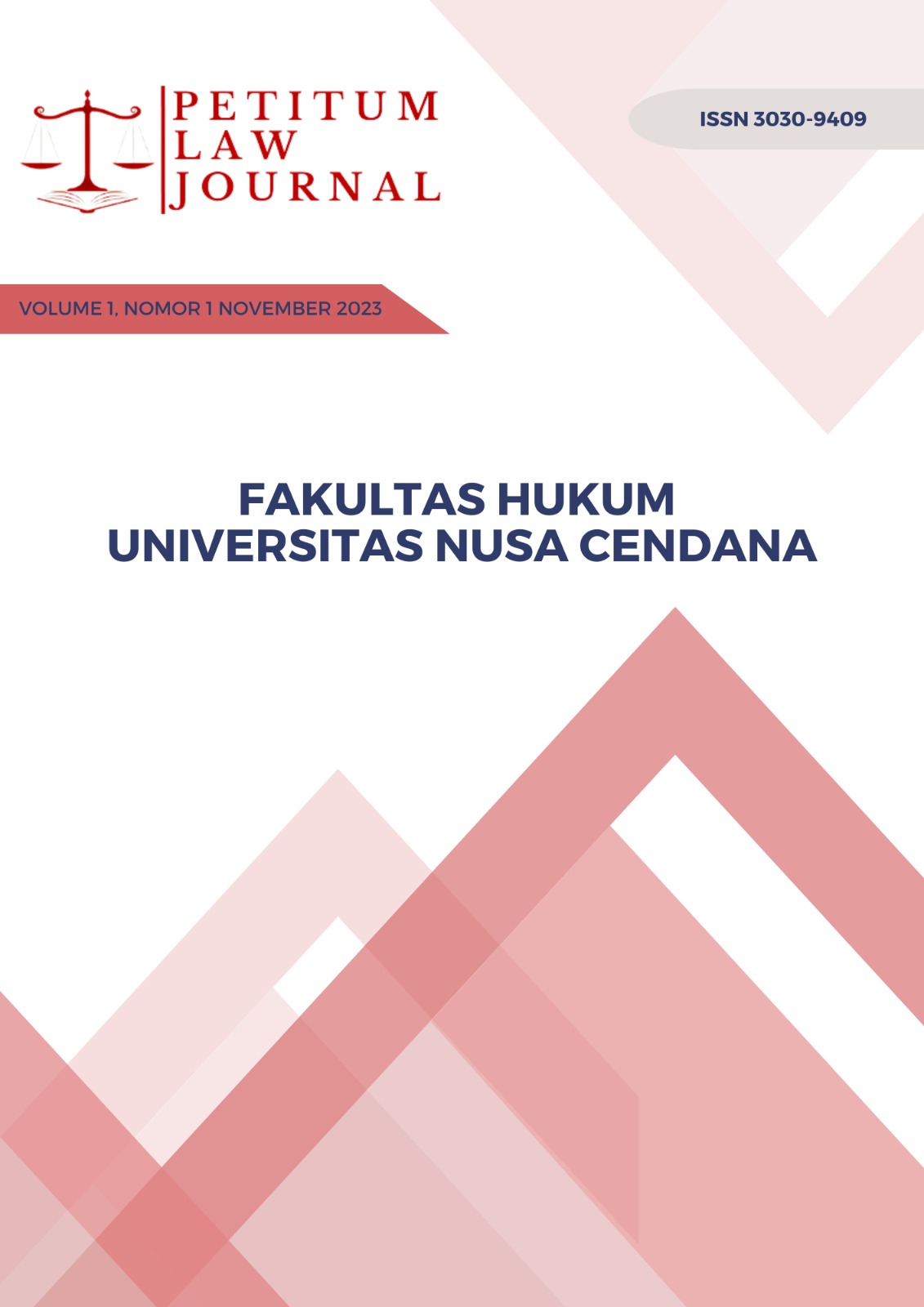IMPLENTASI FUNGSI PENGAWASAN DPRD KABUPATEN TIMOR TENGAH UTARA PERIODE 2019-2024 TERHADAP PELAKSANAAN PERATURAN DAERAH KABUPATEN TIMOR TENGAH UTARA MENURUT UNDANG-UNDANG NO 23 TAHUN 2014 TENTANG PEMERINTAH DAERAH
Main Article Content
Abstract
The problems in this research are (1) To what extent is the implementation of the North Central Timor Regency DPRD's supervisory function for the 2019-2024 period regarding the implementation of North Central Timor Regency Regional Regulations according to Law Number 23 of 2014 concerning Regional Government (2) What are the factors inhibiting the supervisory function? North Central Timor Regency DPRD for the 2019-2024 Period Regarding the Implementation of North Central Timor Regency Regional Regulations According to Law Number 23 of 2014 concerning Regional Government.The research method uses empirical legal research. Aspects of the research include the rights of the DPRD in carrying out supervisory functions and the factors that inhibit the DPRD of North Central Timor Regency in implementing the Regional Regulations of North Central Timor Regency according to Law No. 23 of 2014 concerning Regional Government. The approach method uses a conceptual approach and a sociological approach. The types and sources of data for this research are primary data and secondary data. Respondents in this research were the Chair of the DPRD of North Central Timor Regency, members of the DPRD and the Secretary of the Council. Data collection techniques include interviews and observations. Data processing takes the form of data checking, data systematics and data tabulation. Data analysis was carried out in a qualitative descriptive juridical manner.he results of the research and discussion show that the implementation of the DPRD's supervisory function regarding the implementation of Regional Regulations in North Central Timor Regency has not been implemented optimally. Factors that influence the DPRD's supervisory function regarding the implementation of Regional Regulations consist of internal factors including the level of formal education of DPRD members generally in the secondary or high school education category so that it does not support the effective implementation of supervision because the average level of education of regional government officials is higher, namely Master's level. Meanwhile, development activities for council members through strengthening informal education and work experience of DPRD members are not sufficient to support the human resources of DPRD members in carrying out supervisory functions.

